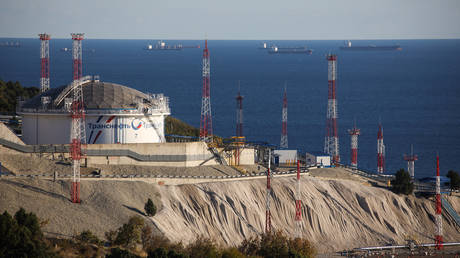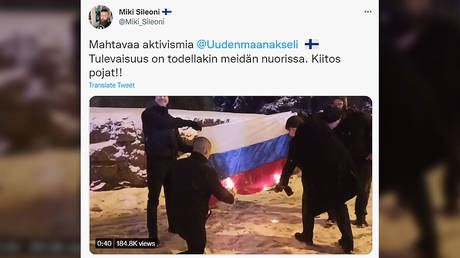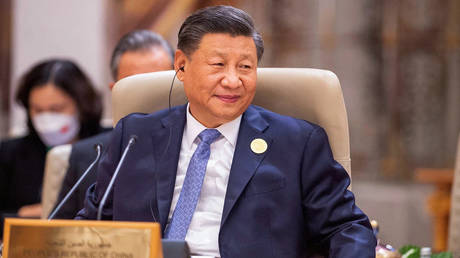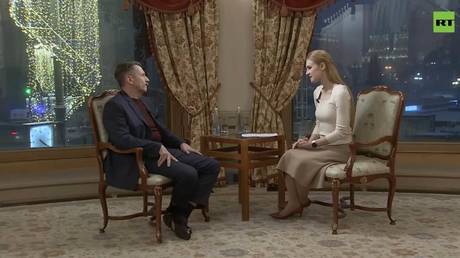Western price cap disrupting global oil markets – economist
EU sanctions on Russian oil will not hurt Moscow but will lead to global supply disruptions, an energy economist warns Read Full Article at RT.com

The embargo on Russian crude may lead to unexpected results for most industrialized nations, an energy economist warns
The latest EU sanctions on Russian oil exports will fail to strip the country of its revenues, but are already causing global oil supply disruptions, a senior energy economist at CER-Centro Europa Ricerche told Sputnik news agency on Wednesday.
The EU embargo took effect on Monday and was accompanied by a $60 price cap on Russian crude, supported by G7 countries and Australia. Any transactions over this limit are now barred from receiving brokerage, shipping, or insurance services.
Demostenes Floros said that although the price cap has not sparked an immediate surge in oil prices, severe consequences lie ahead. The economist predicts rising demand in China, which will inevitably affect the cost of crude. He added that higher energy prices will deal a blow to the EU at a time of spiraling inflation and an unfolding recession.
Floros explained that “43% of EU inflation is related to energy prices, while only 17% of US inflation is due to energy prices and this is a very big difference between the European Union and the United States,” adding that the price cap will deepen the split within the bloc.
READ MORE: Russia preparing response to oil price cap – Kremlin
The sanctions may also result in serious problems with contracting necessary volumes of diesel in the EU once the ban on Russian refined oil products comes into force on February 5, he warned.
“I think that prices will increase, especially if other OPEC+ producers will not compensate Russian output,” the economist said, cautioning that the “politicization” of energy supplies could further destabilize a market which has not yet recovered from the Covid crisis.
EU oil sanctions on Russia are already causing setbacks. Dozens of tankers carrying 23 million barrels of crude are currently stuck in the Bosporus and Dardanelles straits, unable to pass, as Turkish authorities demand proper insurance guarantees.
Most of the Black Sea crude stuck in the straits was from Kazakhstan, which is not targeted by sanctions, according to EU officials. At the same time, Russian insurance companies have already provided letters of confirmation to Turkish authorities in order to secure passage.
For more stories on economy & finance visit RT's business section















